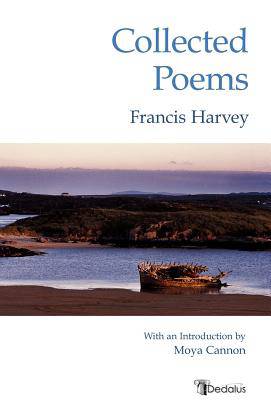
- Afhalen na 1 uur in een winkel met voorraad
- Gratis thuislevering in België vanaf € 30
- Ruim aanbod met 7 miljoen producten
- Afhalen na 1 uur in een winkel met voorraad
- Gratis thuislevering in België vanaf € 30
- Ruim aanbod met 7 miljoen producten
Zoeken
Omschrijving
FRANCIS HARVEY was born in Enniskillen in 1925 and has published four previous collections of poems, the most recent of which is Making Space: New & Selected Poems (Dedalus, 2001). Among the many prizes his work has won are The Irish Times/Yeats Summer School Prize, The Guardian/WWF Prize, and a Peterloo Prize. The publication of Collected Poems is a major event in the Irish poetry calendar, bringing together work from all of his earlier collections with a large selection of new poems which show him to be as attentive as ever both to philosophical subtleties and to the wonders of the natural world. In the context of Irish poetry, Harvey is, according to Moya Cannon in her Introduction, "a Basho-like figure, guided by an unwavering sense of true north, always moving to the washed light on higher ground."
Specificaties
Betrokkenen
- Auteur(s):
- Uitgeverij:
Inhoud
- Aantal bladzijden:
- 244
- Taal:
- Engels
Eigenschappen
- Productcode (EAN):
- 9781904556671
- Verschijningsdatum:
- 19/04/2007
- Uitvoering:
- Hardcover
- Formaat:
- Genaaid
- Afmetingen:
- 140 mm x 216 mm
- Gewicht:
- 444 g

Alleen bij Standaard Boekhandel
+ 61 punten op je klantenkaart van Standaard Boekhandel
Beoordelingen
We publiceren alleen reviews die voldoen aan de voorwaarden voor reviews. Bekijk onze voorwaarden voor reviews.











